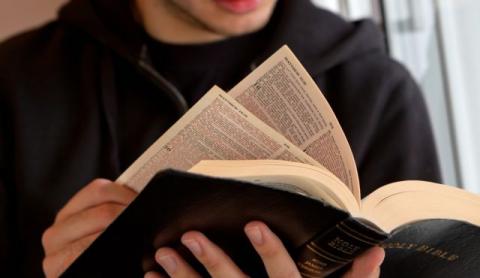Bringing secular Israelis closer to the Bible
Another purpose is “to instill in the Jewish people a learning method for future generations by creating a common track for studying it in cycles on the basis of a chapter a day, similar to the Daf Yomi project for the Talmud.” The reference is to the daily folio Talmud study plan that goes through the entire Babylonian Talmud every seven-and-a-half years.
The ministry also wrote that the project will give expression to “the different facets of the Bible and its varied commentaries,” and aims to make progressing from the beginning of the Bible to the end “a trend – a social phenomenon.”
The project will be based on “harnessing familiar figures to disseminate a ‘daily taste’ of every chapter … using the social networks,” its documentation says. There will also be “field activities and clubs,” such as Bible clubs in local authorities, schools, informal education frameworks, premilitary academies and more. There will also be special events, “Like a TED conference devoted to the Bible, as well as activities aimed at Diaspora Jewry, including distribution of materials, Internet classes or summer camps.”
Sources in the Education Ministry say its investment in this project – 23.5 million shekels – is considered high. The ministry did not say which budget item this funding would come from. Programs in Judaism aimed at the general public are funded from the Jewish Culture budget; in 2014 this section was increased 30 percent over the previous year and totals 37.6 million shekels. Funding for religious and Jewish heritage subjects in schools totaled 19 million shekels, compared to the 1.9 million shekels granted for special programs in civics education.
One ministry source called the program “a response to the Jewish Identity Administration set up in the Religious Services Ministry, but we will operate in a pluralistic fashion to bring the Bible closer to the secular public.” Another source said the project “Reflects the priorities of the ministry heads, under which projects in the fields of civics and Jewish-Arab coexistence don’t merit the same investment.”
Or Kashti

